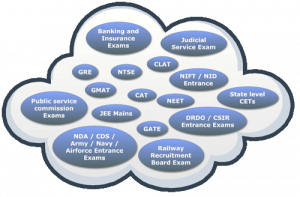Best Books to Read in 2023
Best Books to Read in 2023 Are you a bookworm or a bibliophile, if yes, then this is the ...
Embarking on a journey toward an engineering career is both thrilling and pivotal. The right choice of an engineering college can shape your education, skills, and future opportunities significantly.In this comprehensive guide, we will explore ten crucial tips to consider when selecting the ideal engineering college, ensuring a well-informed decision that aligns with your goals.
Also, read Best Books For Engineering Students

Let’s discuss 10 quick guidelines to guide you in choosing the best engineering college. From defining your goals to researching affiliations and exploring financial considerations, these insights will help you make a well-informed decision for a successful academic journey and future career.
Tip 1: Clarify Your Goals and Interests
Before delving into the vast array of engineering colleges, take a moment to introspect and define your goals. Identify your specific interests within the engineering realm, whether it’s cutting-edge technology, sustainable design, or complex problem-solving. This foundational step will streamline your search and guide you toward colleges aligned with your aspirations.
Highlight: According to recent studies, students who align their college choices with their interests are more likely to excel academically and find fulfilment in their careers.
Tip 2: Choose the Right Specialization
Many engineering specialisations provide unique prospects. Choose a specialisation that matches your abilities, interests, and long-term aspirations. Consult experts or alumni to understand each specialisation and make sure it fits your interests and career goals.
Highlight: According to industry surveys, graduates with specialized engineering degrees are in higher demand and often command better salary packages.
Tip 3: Research Different Engineering Colleges
Develop a systematic approach to researching potential colleges. Consider factors such as location, campus environment, available specializations, and size. Evaluate the resources, faculty expertise, and extracurricular opportunities each college provides. A well-researched decision ensures a conducive learning environment tailored to your preferences.
Highlight Smaller class sizes, often indicative of more personalized attention, contribute to a richer learning experience. This emphasis on individualized interaction enhances the overall educational experience
Tip 4: Check Affiliations and Accreditations

Affiliations with regulatory bodies like the All India Council for Technical Education (AICTE) and accreditations from organizations like the National Board of Accreditation (NBA) and the National Assessment and Accreditation Council (NAAC) are vital. These affiliations ensure the college meets the necessary standards for comprehensive engineering education.
Highlight: Graduates from colleges approved by AICTE demonstrate a notably elevated success rate in obtaining professional licensure, underscoring the accreditation’s impact on career achievements.
Also, read 10 Bollywood Actors Who Have Studied Engineering
Tip 5: Investigate Placement Records:
Examine the placement records of potential colleges to gauge their success in helping graduates secure employment. Look for information on job placement rates, average starting salaries, and the industries where graduates find employment. A strong placement record is indicative of a college’s commitment to preparing students for the workforce.
Highlight: Colleges with robust placement records often have established connections with industry leaders, enhancing job prospects for graduates.
Tip 6: Consider Fee Structure:
Compare tuition, fees, and available financial assistance offerings at each institution, including a detailed analysis of merit-based scholarships, grants, and loan options. A comprehensive understanding of the fee structure is essential to align your education with your financial capabilities, enabling a well-informed decision in pursuing higher education.
Highlight: According to recent surveys, the average student loan debt for engineering graduates is significantly lower for those who received merit-based scholarships.
Tip 7: Explore Extracurricular Opportunities
Beyond academics, evaluate the extracurricular opportunities each college offers. Engaging in activities such as engineering clubs, competitions, internships, and research projects enhances practical skills and fosters personal growth. A well-rounded education prepares you for the dynamic challenges of the engineering world.
Highlight: Internships and research opportunities during college significantly contribute to a graduate’s employability. These experiences demonstrate a proactive commitment to professional growth.
Tip 8: Conduct a Thorough Campus Tour

The college campus will be your home and training ground. If feasible, conduct a thorough campus tour to assess facilities like playgrounds, canteens, recreational spaces, hostels, and student safety. A comfortable and well-equipped campus contributes to a positive learning experience.
Highlight: Studies show that students who feel comfortable in their campus environment are more likely to perform well academically.
Tip 9: Look for International Tie-Ups
Colleges with international tie-ups provide additional avenues for advanced training and global exposure. Check if the college facilitates student and faculty exchange programs, participation in international competitions, and opportunities for international internships. Such experiences enhance your competitiveness in the global job market.
Highlight: Students with international exposure often possess a broader perspective, making them sought-after candidates in multinational corporations.
Tip 10: Assess Research Opportunities & Facilities
Top engineering colleges emphasize research initiatives, offering high-tech labs and government grants. Investigate the research facilities each college provides, including the number of papers published by in-house scholars. A research-oriented curriculum ensures that you stay abreast of industry advancements.
Highlight: Graduates from colleges with robust research facilities are more likely to contribute to innovations in their respective fields.
Conclusion:
Choosing the best engineering institution is crucial to your success. You may make an educated selection that matches your objectives by following these 10 tips and examining the major highlights and data. Remember, engineering school is about preparing for a successful career in the dynamic field of engineering, not simply learning.
Also, read Top 10 Programming Languages for Software Engineers
Meet Tanu Bhatnagar, an educational expert with extensive experience in teaching, research and mentoring.With a decade in... (Full bio)

Best Books to Read in 2023 Are you a bookworm or a bibliophile, if yes, then this is the ...

In the exhilarating journey of 10 Proven Memorize Techniques for Students learning, memory is your trusty companion. Whether ...

Top 20 toughest exams in world is about exams in the world that required very hard work to ...

Top 20 toughest exams in India - Exams are the perhaps most toughest moments for any student. A ...

Top 20 Colleges of DU Getting admissions to the top 20 colleges of DU is a dream for every ...

Top 20 NITs of India - Amongst the 31 NITs in India, today, we are talking ...

Here are the Top 12 Artificial Intelligence in Mumbai. Artificial intelligence (AI) refers to the simulation of human ...

As you stand on the Best Science Courses after 12th academic journey, the realm of science beckons, offering ...
Millions of students have entrusted CollegeChalo to facilitate their seamless and smooth admission process to their dream colleges and universities. With CollegeChalo, you can gain a competitive edge by easily accessing exam and course details to stay ahead of the admission journey. What are you waiting for?
Search your dream college